
-
 Chiefs' Mahomes targets NFL 'Week 1' after knee surgery
Chiefs' Mahomes targets NFL 'Week 1' after knee surgery
-
Venezuelan interim leader vows oil sector reform after Maduro ouster
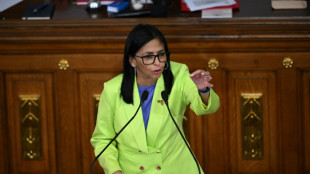
-
 Social media sites block 4.7 million underage accounts in Australia
Social media sites block 4.7 million underage accounts in Australia
-
US court clears Norway's Equinor to resume wind project halted by Trump
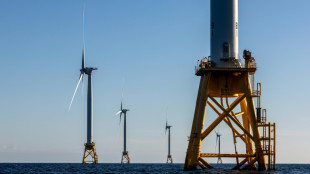
-
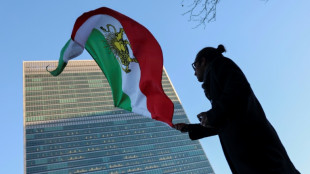 Threats to Iran spike 'volatility': UN official
Threats to Iran spike 'volatility': UN official
-
Rabiot and AC Milan give Como French lesson to stay on Inter's heels

-
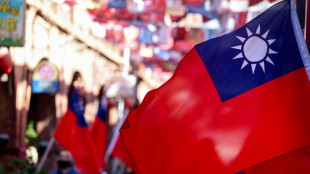 US says reached deal with Taiwan to lower tariffs, boost investments
US says reached deal with Taiwan to lower tariffs, boost investments
-
South Korea's ex-leader Yoon faces first court verdict over martial law chaos

-
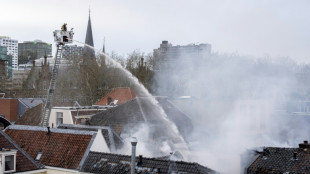 'Gigantic explosion', fire in Dutch city of Utrecht, four hurt
'Gigantic explosion', fire in Dutch city of Utrecht, four hurt
-
Twenty-six charged in latest basketball gambling scandal

-
 Venezuela's Machado meets Trump for 'positive' talks despite snub
Venezuela's Machado meets Trump for 'positive' talks despite snub
-
NBA Europe 'must respect tradition', says commissioner Silver
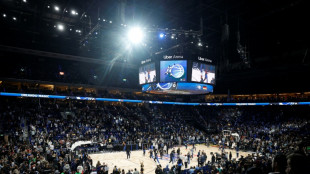
-
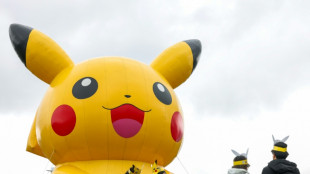 Thieves steal Pokemon cards in armed robbery at US store
Thieves steal Pokemon cards in armed robbery at US store
-
French Olympic champion Papadakis claims she was under partner's 'control'

-
 Fury over Grok sexualized images despite new restrictions
Fury over Grok sexualized images despite new restrictions
-
US says Iran halts executions as Gulf allies pull Trump back from strike

-
 Frank says Spurs taking 'small steps' in right direction
Frank says Spurs taking 'small steps' in right direction
-
Syrian activist Sarah Mardini acquitted of migrant trafficking in Greece

-
 Goldman Sachs' profits jump on hot merger market
Goldman Sachs' profits jump on hot merger market
-
Platini says Infantino has become 'more of an autocrat'
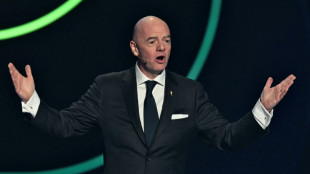
-
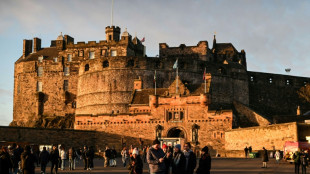 Scottish Borders, Lake District to grace 2027 Tour de France
Scottish Borders, Lake District to grace 2027 Tour de France
-
Venezuela's sidelined Machado arrives at White House for Trump talks

-
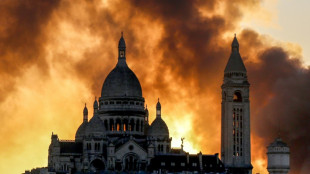 French mother superior bullied nuns at Paris order: inquiry
French mother superior bullied nuns at Paris order: inquiry
-
Cuba pays tribute to soldiers killed in Maduro capture

-
 UK politician joins hard-right Reform just hours after Tories sack him
UK politician joins hard-right Reform just hours after Tories sack him
-
'Gigantic explosion', fire in Dutch city, four hurt
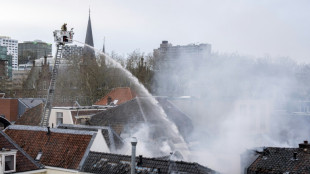
-
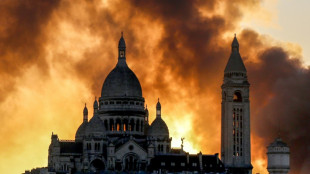 French mother superior bullied nuns at Paris convent - inquiry
French mother superior bullied nuns at Paris convent - inquiry
-
Deprived of heating, Kyiv enters survival mode to beat big freeze
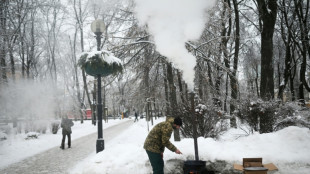
-
 Oil prices slump after Trump eases concerns over Iran
Oil prices slump after Trump eases concerns over Iran
-
French mother superior bullied nuns in Montmartre: report
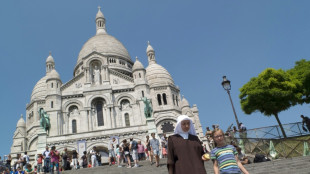
-
 Rosenior refuses to back Sanchez as Chelsea number one
Rosenior refuses to back Sanchez as Chelsea number one
-
Harry due to testify to UK court next week in last tabloid case

-
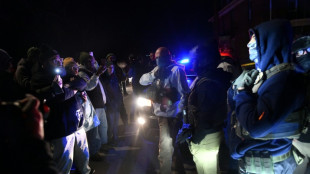 Trump threatens to invoke Insurrection Act over Minnesota protests
Trump threatens to invoke Insurrection Act over Minnesota protests
-
Niger faces dilemma over uranium shipment stuck at airport
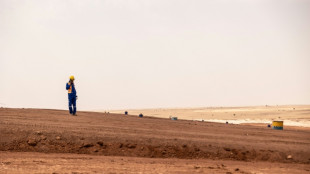
-
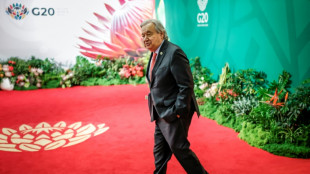 UN chief attacks world leaders putting cooperation on 'deathwatch'
UN chief attacks world leaders putting cooperation on 'deathwatch'
-
Morocco and Senegal prepare for final showdown but Salah's AFCON dream fades

-
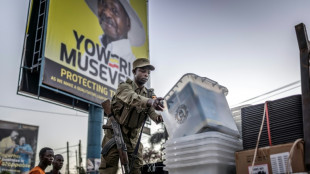 Polls close in Uganda after delays, internet blackout
Polls close in Uganda after delays, internet blackout
-
Forced confession fears as Iran chief justice interrogates protesters
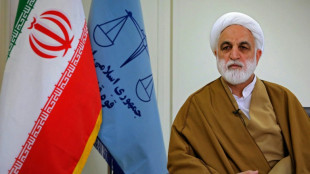
-
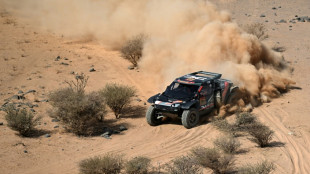 Al-Attiyah closes on sixth Dakar Rally as Ekstrom wins 11th stage
Al-Attiyah closes on sixth Dakar Rally as Ekstrom wins 11th stage
-
Luis Enrique has no doubts about PSG's title credentials

-
 England off-spinner Bashir signs for Derbyshire after Ashes exile
England off-spinner Bashir signs for Derbyshire after Ashes exile
-
Trump convinced 'to give Iran a chance' after threats over protest crackdown

-
 European military mission in Greenland as US aim 'remains intact'
European military mission in Greenland as US aim 'remains intact'
-
UK's Hockney warns moving Bayeux Tapestry would be 'madness'
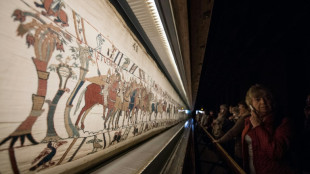
-
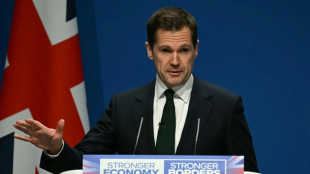 Senior UK opposition politican sacked over 'plot' to join hard-right party
Senior UK opposition politican sacked over 'plot' to join hard-right party
-
Syrians flee Kurdish-controlled area near Aleppo

-
 Pressure piles on Musk's X to curb sexualised deepfakes
Pressure piles on Musk's X to curb sexualised deepfakes
-
Chinese dissident artist Ai Weiwei debuts in India

-
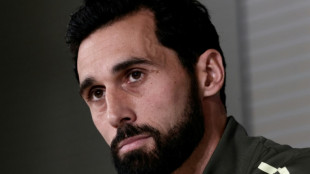 Arbeloa must act fast to avert Real Madrid crisis
Arbeloa must act fast to avert Real Madrid crisis
-
Top Bangladesh cricket official sacked amid World Cup row


Scientists voyage to Greenland's melting sanctuary
With rugged red mountains rising on either side, a sailboat carrying scientists deftly snakes between icebergs brimming Greenland's Scoresby Fjord, as they rush to document this understudied region on the frontline of climate change.
After the warmest July ever recorded at Summit Camp atop Greenland's ice sheet, the expedition members sailing the country's east coast are acutely aware of the urgency.
"The risk that we have here is the disappearance of the complete ecosystem," Eric Marechal, director of research at the French National Centre for Scientific Research (CNRS), tells AFP on board the sailboat Kamak.
In addition to the icebergs -- which in some areas blanket over half of the fjord -- the scientists also need an armed escort to protect against polar bears.
But for the researchers, facing the harsh environment is a risk worth taking for rare access into one of the world's most isolated ecosystems.
"We see that global warming is really entering a strong phase here. So we need to document that," says expedition leader Vincent Hilaire.
The expedition, arranged by the volunteer-run French initiative Greenlandia, aims to understand climate change's effects on Scoresby Fjord and its inhabitants.
Frozen in ice for eleven months of the year, the planet's largest fjord system, which remains vastly understudied, is a challenge to manoeuvre even for a seasoned crew.
"There is a big gap between what we see on the maps and the reality, so we have to move forward carefully," says Kamak's captain David Delample.
The warm sunlight carves pathways of melting snow on the sides of the icebergs, while the thundering sound of calving glaciers surrounding the fjord fills the air.
Some icebergs are chiselled monoliths of blue ice towering above the sea taller than the Arc de Triomphe monument in Paris, others smooth mounds with cascading layers of white snow.
The danger of the boat getting crushed between the mammoth blocks of ice is tangible, and the sound of the frozen giants banging against the ship's hull ensures an uneasy slumber.
The only human settlement within a 500-kilometre (310-mile) radius is the Greenlandic town of Ittoqqortoormiit near the mouth of the fjord, with its 300 or so inhabitants.
The scientists are working against the clock, well aware the fjord will freeze over again by mid-September.
"The future scientific generation will observe a massive melting in Greenland," Hilaire says.
For the team, filling the knowledge gap in the research of this remote region before it changes is essential to guide policy in the future.
"We will give them the maximum amount of samples," Hilaire says.
Q.Najjar--SF-PST




